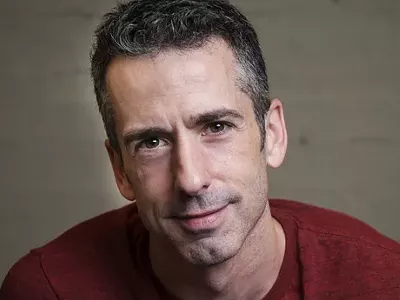
Audio By Carbonatix
[
{
"name": "GPT - Leaderboard - Inline - Content",
"component": "35519556",
"insertPoint": "5th",
"startingPoint": "3",
"requiredCountToDisplay": "3",
"maxInsertions": 100,
"adList": [
{
"adPreset": "LeaderboardInline"
}
]
}
]
Last time I saw Gilda Snowden
I saw her see me
I was second-lining
Dancing to the strains
Of a New Orleans brass band
Umbrella held high
Beads swinging on my chest
She viewed me through
Her camera lens
At the Dally in the Alley
Later at the Cass Café
As I ate lentil soup and fries
She passed by smiling
Waved her camera at me
"I've got you in here"
I wave my heart at Gilda
I've got her in there somewhere
Detroit has lost two vibrant, powerful, and influential women over the last few months. I speak of artist Gilda Snowden and community activist Charity Hicks. Although they were part of different circles and traveled different paths, they were both teachers who imparted potent visions of the world to those around them.
And as both of them have passed on, they again give veracity to the blues sung by the Rev. Gary Davis: "Death don't have no mercy."
I was leading a Second Line parade through the crowd at the Dally in the Ally when I spotted her taking a picture of me. I smiled and made some gesture in her direction as I passed by. I saw her a little later at the Cass Café. Then, some 36 hours later, she was dead.
I've known Gilda since the late 1970s when we were both denizens of the Cass Corridor arts crowd. I wrote poetry and played music. She made images. We didn't socialize in the sense that we visited each other's homes or even talked that much. We'd see each other in public places and greet each other with the sense that we were kindred spirits in that world. I probably ran into her husband, actor Bill Boswell, more often than her.
Sometime in the early 1980s I cut off the dreadlocks I had been growing for several years. My head felt naked, and I missed them. About the same time I ran into Gilda who had just started growing her own dreads. We talked about them and my own sense of loss for my hair. For years when I saw her, we would always talk about the length of her locks as they grew.
Then in the early 1990s, just as I started growing my locks again, she cut hers off. We decided that we were taking turns having dreads.
A couple of years ago, while I was writing an essay to go into the book Detroit Resurgent, I focused on the corner of Cass and Willis, using the changes at that intersection over the years as a metaphor for my personal Detroit and how it had changed.
I sat down with Gilda then to talk about the Willis Gallery, which was located just off the corner in the late 1960s and into the early 1980s. Gilda curated exhibits there during its later years. She spoke of the artists involved there. "They all came together as a unit in this one little area," she said. "This gallery was extremely significant."
There's a photo portrait of Gilda in Detroit Resurgent. She stands calmly gazing at the camera, her dreadlocks adorning her head and shoulders. For once, we were both dread at the same time.
Gilda taught at the College for Creative Studies over the past 30 years. Myriad comments from students and colleagues recently posted on her Facebook page are evidence of how impressive and widespread her influence has been during that time.
There's a Huffington Post article about Gilda with a short video embedded at the end. In it, she talks about her 60th birthday that just passed. "What the Chinese say, when you turn 60 you start over again," she said. "I'm going to have a new me."
How prophetic.
The Second Line is part of a funeral ritual turned celebration. It seems ironic that we participated in that ritual just two days before her death. There were other people I know in the crowd that day, but Gilda left the biggest impression because I saw her again later in another place.
Charity Hicks is a woman I had seen around town off and on at meetings or other gatherings for years. I had never spoken with her. I didn't even know her name. She was just someone I saw around.
Last spring I called up Charity to talk about the Climate Justice Alliance for one of these columns. She worked with the CJA through her position as policy coordinator at the East Michigan Environmental Action Council. I was immediately blown away at the depth and breadth of knowledge Charity laid out in the course of this one conversation.
She talked about issues going on around the world, from land reform in Brazil to climate refugees in the Arctic Circle to the New Orleans wetlands and tied it all together. Not only did she have the conceptual stuff down, she had the statistics, names, and numbers at the tip of her tongue.
Charity could break it down any way you needed it. She had spoken at conferences in Brazil, Tunisia, and Canada. Yet she could go to a neighborhood meeting and connect with the folks on the block in a meaningful way.
"Wage love," she would tell people.
I felt like she was a walking encyclopedia and thought that she was a source I would have to revisit many times. I was taking notes when I called her because that's what I do during an interview. I later found out that many of her colleagues and friends took notes when they spoke with her. She sometimes told them to take notes; and they did. There was no other way for the average person to retain the information she had at hand or to manage all of the fronts she worked on.
Hicks was one of the principals in setting up the Detroit Food Policy Council, was a member of the People's Water Board, worked at the U.S. Social Forum 2010, was active with the Great Lakes Bioneers, the Sierra Club, and the Detroit Food Justice Task Force, just to name a few. She fought against the air-polluting Detroit incinerator and always had time for the youth. She schooled everybody.
Shortly after I spoke with Charity, she was briefly incarcerated when she opposed water shut-offs on her block. A few weeks later while in New York to present as a panelist at the Left Forum 2014, Charity was hit by a car that ran over the curb while she waited for a bus. She never regained consciousness.
It was only in the aftermath of that tragedy when I saw her picture that I realized the woman who had impressed me on the phone was the same woman I had seen around town.
Charity Hicks and Gilda Snowden were both community giants who will be sorely missed by their families and the communities they lent their vibrancy to.
Gilda and Charity, lovely names, incredible people. — mt






